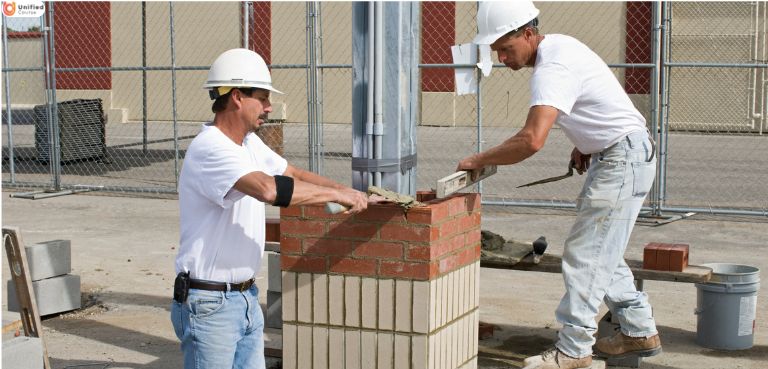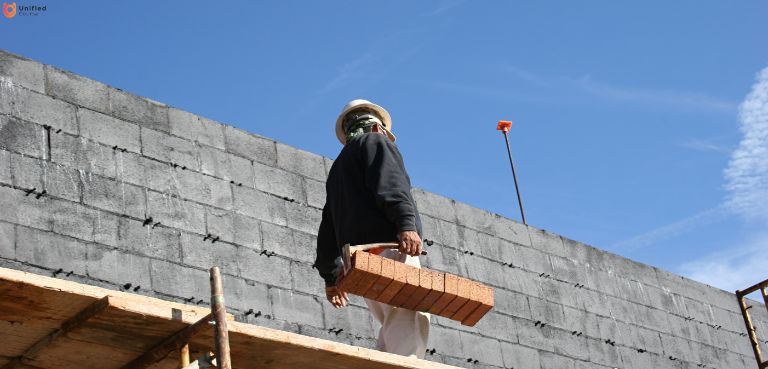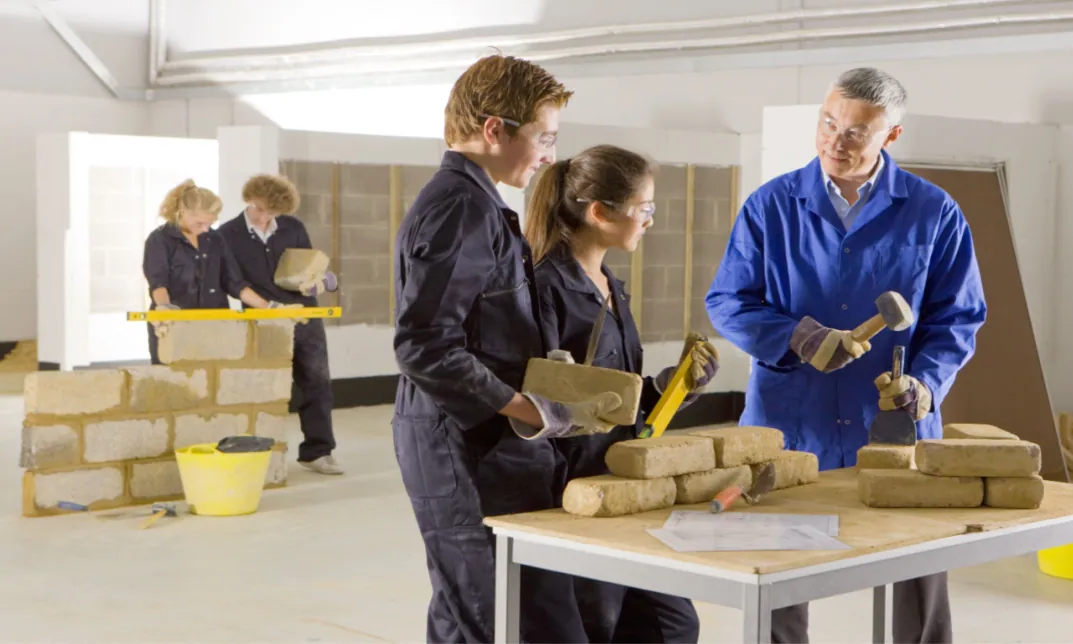Bricklaying is a respected and essential trade in the construction industry, offering steady income opportunities. However, the earnings of bricklayers can vary significantly based on their experience, location, and employment type. On average, they earn a competitive wage, with many seeing their income increase as they gain experience or specialise in particular areas. So, let’s explore how much bricklayers earn and what factors influence their income.

Factors That Influence Bricklayers’ Pay
Several key factors significantly impact how much bricklayers earn. Therefore, understanding these factors can help explain why wages differ among workers and across projects.
- Experience Level: Newcomers to bricklaying, often referred to as apprentices or trainees, generally earn less than seasoned professionals. However, as they develop their skills and expertise, their earnings increase. Mastering advanced techniques and improving efficiency often result in higher pay.
- Location: A bricklayer’s location significantly impacts their income. In larger urban areas, wages are usually higher to align with the cost of living. For example, bricklayers in London often earn more compared to their counterparts in rural regions.
- Employer Type: Those employed by construction companies typically receive steady wages. In contrast, freelance or self-employed bricklayers have the flexibility to set their rates, often leading to higher earnings. However, they may also face periods of reduced demand.
- Specialisation: Bricklayers with expertise in specialised areas, such as restoration or decorative work, tend to earn more. Their unique skills are often in higher demand for certain projects, making their work more valuable.
How Much Are Bricklayers Paid?
Bricklayers’ earning potential in the UK depends on their experience and skill level. Below is an overview of expected wages at various career stages:
- Apprentices: Entry-level bricklayers usually earn between £18,000 and £22,000 per year. While these initial earnings might appear modest, the training period provides valuable skills that pave the way for significantly higher wages as their expertise grows.
- Mid-level Bricklayers: Bricklayers with a reasonable level of experience typically earn between £30,000 and £40,000 annually. Their income often depends on their productivity and the complexity or scale of the projects they undertake.
- Highly Skilled or Specialised Bricklayers: Professionals with advanced skills or specialisation can earn £50,000 or more per year. Their higher earnings are particularly common in areas with a strong demand for their expertise.
How Much Can a Self-Employed Bricklayer Earn?
Self-employed bricklayers have the potential to earn more than those employed by companies because they can set their rates and take on high-paying projects. However, they also face additional costs, such as tools, transport, and insurance, which can impact their overall earnings.
On average, they earn between £150 and £250 per day. Moreover, skilled and experienced professionals may charge even higher rates, especially for complex or specialised jobs. Additionally, they have the opportunity to boost their income by taking on multiple contracts or hiring a team to increase their workload capacity. Therefore, while self-employment offers greater earning potential, it also requires careful management of expenses and responsibilities.

How Bricklayers Are Paid
They can be paid in several ways depending on their employment arrangement.
- Hourly Rate: Many bricklayers are paid hourly, especially if they work for a company. This method ensures consistent income based on time spent on the job.
- Day Rate: Self-employed bricklayers often prefer a daily rate, which provides flexibility. As a result this can lead to higher earnings.
- Price per Brick: Some projects pay bricklayers based on the number of bricks laid. While this method can result in high earnings for fast workers, it requires skill and speed to be profitable.
Tips to Maximise Earnings as a Bricklayer
If you’re a bricklayer or considering becoming one, there are ways to increase your earnings.
- Gain Qualifications: To begin with, completing formal training and earning certifications can enhance your credibility in the industry. Furthermore, these qualifications make you more appealing to both employers and private clients, often leading to better-paying opportunities.
- Develop Specialised Skills: Additionally, mastering niche skills such as decorative brickwork or heritage restoration can significantly increase your earning potential. These specialised tasks are often in high demand and, therefore, command premium rates.
- Work in High-Demand Areas: Moreover, relocating to regions with active construction projects or high demand for bricklayers can result in higher wages. For instance, urban centres and rapidly developing areas often offer better pay due to increased competition for skilled workers.
- Build a Strong Reputation: Finally, consistently delivering high-quality work and maintaining a professional attitude can significantly boost your reputation. As a result, a strong reputation often leads to repeat clients and referrals, helping to secure higher-paying projects
Conclusion
Bricklaying is, without a doubt, a trade that offers competitive pay and strong job security, particularly for those with experience or specialised skills. Moreover, earnings can vary based on factors such as location, experience, and type of employment, but the profession consistently provides numerous opportunities for financial growth.
Therefore, for anyone considering a career in bricklaying or looking to hire a professional, understanding these details is essential for setting fair expectations and making informed decisions. Consequently, with the right skills and careful planning, bricklaying can become both a rewarding and sustainable career choice.
If you’re looking to begin your bricklaying career, Unified Course’s Bricklaying Training Course offers expert-led instruction, equipping you with the skills and qualifications needed for a successful and rewarding profession.




